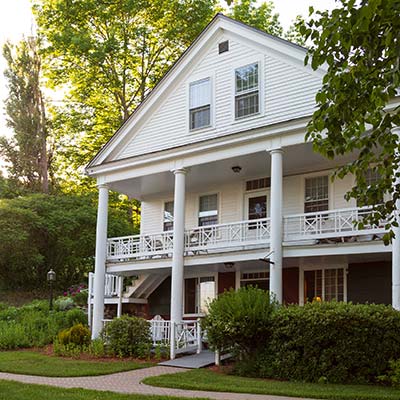by Rick Newman of Commercial Capital Network, LLC
Updated October, 2018
All Bed & Breakfasts/Inns are unique by design. In fact, it is that unique quality that separates one Bed & Breakfast/Inn from the next. Innkeepers invest their energy and capital over time to create a welcoming and hospitable environment that is special to them, their community and valued guests who appreciate the inn and the experience the owners provide. While the charm and ambiance of an inn add to a patron’s experience, such intangibles have only an indirect effect on its actual commercial value.
An Inn’s commercial value will ultimately be determined by a combination of the real estate value, cash flow, good will, and furniture, fixtures and equipment (FF&E). Together, this value will be its value as a “Going Concern”. It is important that you are comfortable with this value before making an Offer to Purchase or a Contract of Sale. Realtors who specialize in marketing and selling Bed & Breakfasts/Inns have access to comparable sales data and property specific financial information that should support the asking price and may be made available to “Qualified Buyers”. Lastly, we can analyze the financial data to be sure that income from the property can support the debt service relative to the down payment and your investment objectives.
The Contract of Sale is the controlling document in a purchase and should reflect terms that are practical, relative to the down payment and financing terms for which you are best qualified. The value of the business’s “Good Will” and FF&E may be assigned separate values from the real estate in the Contract of Sale. Try to avoid this if possible, as loan programs that accommodate financing anything other than real estate are less flexible and sometimes difficult to obtain. It is always a good idea to consult with us before entering into a Contract of Sale, since a lender who is familiar with bed & breakfast properties can pre-qualify you specifically to the property you have identified.
Most Contracts of Sale contain a mortgage contingency clause of 30 to 45 days, the exception being cash transactions, 1031 exchanges of equal value, or sales where the seller has agreed to be the primary lender. The contract will also contain inspection clauses for items such as insect infestation, plumbing, HVAC, electrical, and the structural integrity of the building(s). During this due-diligence period, it is also common to incur attorney, survey, and title fees.
It is therefore important to note that should the appraised value be determined to be less than the contract sale price, that value will be used to determine the actual loan-to-value, rather than the contract price.
If this should occur and the parties cannot agree on a revised value or contract terms, the buyer risks losing all or a portion of his/her due-diligence expenses.
Value Determination: The lender will require and order an appraisal of the property. Appraisal fees generally range from $2,400 to $5,000 depending on the nature of the property and customary charges in a geographical area.
Down Payment may be as little as 15% for qualified buyers, although interest rates typically increase proportionate to the Loan to Value (LTV). Funds from 401ks or IRAs can be used as a down payment on a B & B/Inn. The programs are quite complicated, but can be managed professionally by a qualified plan facilitator.
A resume containing experience in the hospitality and/or restaurant industry will be extremely beneficial, as the lender must determine that the borrower’s work history is sufficient to maintain and/or improve the cash flow of the business. Transferable skill sets may be used to offset this requirement
Credit Scores are extremely important to a lender in evaluating the merits of a loan. Your credit (or FICO) scores have a direct impact on the rate, term, and loan program for which you qualify. Note: Individual lender guidelines may vary. For a copy of our Credit Guide, please visit our web site at: www.InnFinancing.com
Conventional Commercial Loans: Because each property is unique in some way, each financing option must be analyzed carefully to determine which programs are available in your state and what options will suit the property you desire to purchase. A Conventional loan application package will contain such information as the Contract of Sale, 3 years business tax returns, an interim financial statement, bank statements, and a business plan. In addition, for all partners with an interest greater than 20%, a credit profile, 2 years’ personal tax returns and resumes will be required.
- For “Viable Inns” (inns that cash flow principally on the business income however, underwriting may use global Debt to Income Underwriting DTI)
- 75% to 80% Loan to Value (LTV)
- 20 to 25 Year Term
- 2% to 3% in Closing Costs
- Cash Flow 1.2 to 1.3% Debt Service Coverage Ratio (DSCR)
SBA FINANCING OVERVIEW
The 7a Program allows for financing of all types of business needs from purchasing real estate and fixed assets to working capital and business acquisitions. SBA’s 7(a) Loan Guaranty Program offers the actual lender, Bank or Non-bank, a loan guarantee currently up to 85% of the loan amount for hospitality properties as they are considered a higher risk property type. The SBA guarantees or insures the lender against loss resulting from a default and collateral shortfall. This guarantee allows the lender to provide for financing not ordinarily offered using conventional policies.
The SBA 7(a) loan program highlights are:
- Up to 85% financing
- Fully amortized loans with no balloons
- Terms to 25 years
- Loans up to $5 million
- Loans may be assumed
- Variable and fixed rate financing at 1.25% to 2.75% over prime –
- 3 and 5 year fixed may be available
- Closing costs 3 to 4%
- SBA Loan Guarantee Fee – 3% of loan amount
The SBA 504 loan program highlights are:
The SBA 504 Program provides a method to finance real estate expansion projects through long-term, fixed-rate financing and is differentiated from the 7(a) program in that it is offered in partnership with a participating lender (Bank or Non-bank).”
The 504b loan program consists of two loans. The first loan and lien position is offered by an authorized lending institution (Bank), and the second loan or second lien position is offered by the SBA via the efforts of a certified development company (CDC). Most CDC’s are private organizations used by the SBA to process the 504-loan application and assist borrowers in obtaining proper funding which meets their needs.
504b eligible project costs include:
- Land and building acquisition
- Site improvements
- Building improvements
- Professional fees, including architect, appraisal, environmental
- Other costs, including title insurance, survey, points and interest on interim loan
The main advantages of the SBA 504 program are as follows:
- Loans to 15 Million
- Small equity injection, as little as 15% toward the total eligible project
- Long-term financing available, up to 25 years on loan 1 and up to 20 years on loan 2
- Very favorable, fully amortizing fixed-rate pricing
- Most closing costs are eligible for project financing
- SBA 504 loans may be assumed
Note: Individual lender guidelines may vary. The information above is only for general information purposes only. For more information, please visit our web site at: www.innfinancing.com





